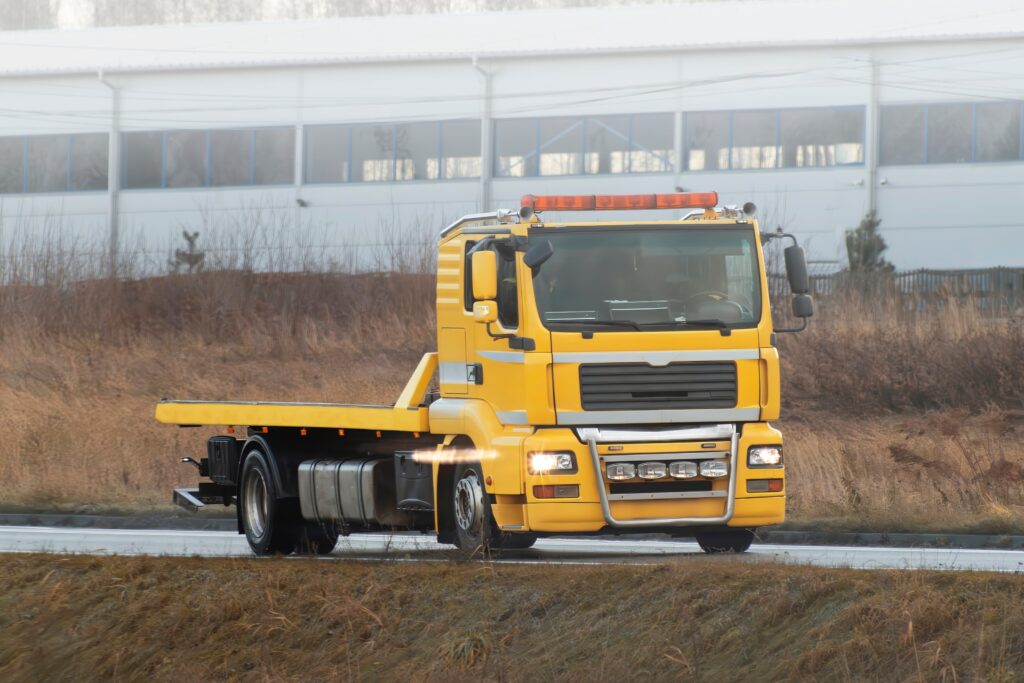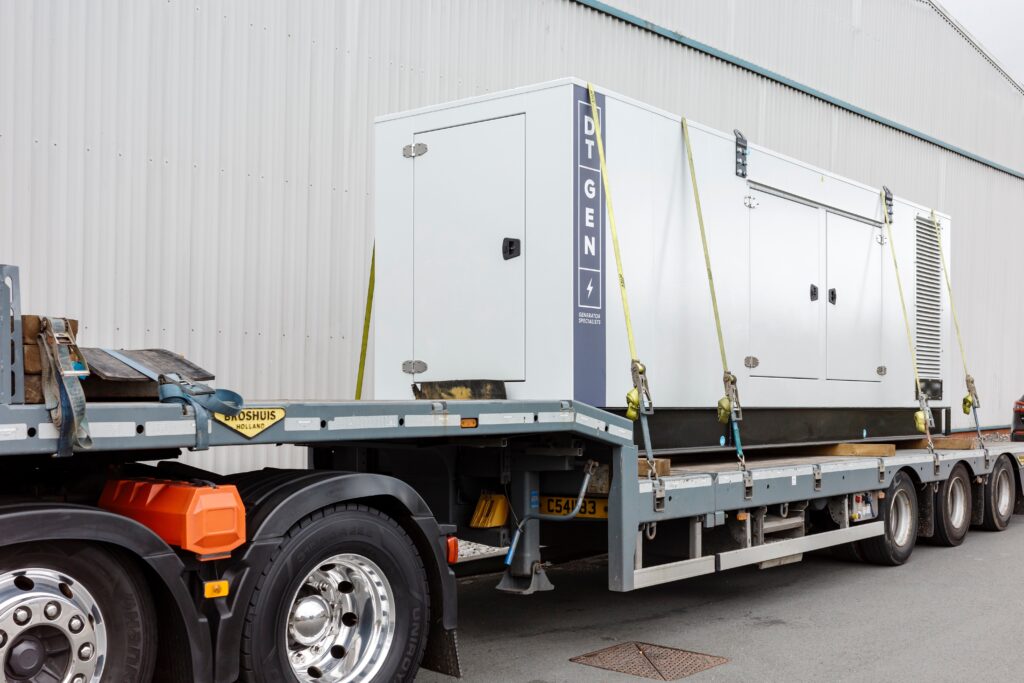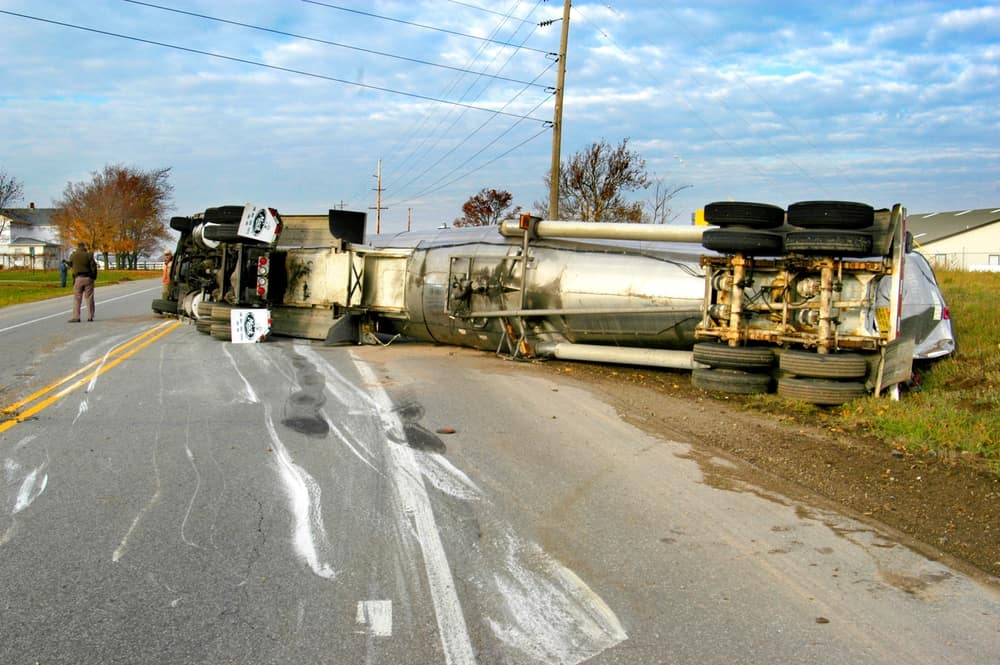Flatbed trucks are necessary in transporting goods across South Carolina’s highways, rural roads, and city streets. While they’re essential to the state’s economy, these large vehicles pose significant risks when accidents occur. Knowing how flatbed truck accidents happen requires examining various factors, including the nature of flatbed trucks, their cargo, and the conditions in which they operate.
Flatbed truck accidents are distinct from other collisions because these vehicles often carry oversized or unsecured loads. If you’ve been involved in such an accident, working with a truck accident lawyer in Columbia, South Carolina, can help you understand your options and pursue compensation for your injuries.
Improperly Secured Loads on Flatbed Trucks

One of the most common causes of flatbed truck accidents is improperly secured cargo. Flatbed trucks are designed to carry loads that are often large, heavy, or irregularly shaped, such as construction equipment, industrial machinery, or large pallets of goods. When this cargo isn’t properly secured, it can shift during transit or even fall off the truck entirely.
For example, if a flatbed truck travels on U.S. Highway 52 near Florence and its load shifts while rounding a curve, the driver may lose control, causing the truck to jackknife or tip over. In other cases, unsecured cargo might fall onto the roadway, creating hazards for other drivers. This type of accident often requires a detailed investigation to determine whether the trucking company, driver, or another party failed to follow proper loading and securing protocols.
Flatbed trucks must adhere to specific regulations for securing cargo, but compliance isn’t always guaranteed. Failing to use the right straps, tie-downs, or coverings can increase the risk of accidents. A South Carolina truck accident attorney will examine whether these safety measures were followed in your case and work to hold the responsible parties accountable.
Driver Fatigue and Its Impact on Flatbed Truck Accidents
Fatigue is another significant factor in flatbed truck accidents. Drivers of these vehicles often face long hours on the road, which can lead to exhaustion and reduced reaction times – not unlike driving while impaired. When a tired driver is behind the wheel of a flatbed truck carrying heavy or oversized cargo, the consequences can be devastating.
For instance, a fatigued driver traveling along I-95 near Walterboro might fail to notice traffic slowing ahead, leading to a rear-end collision. The weight of the truck and its cargo can increase the severity of the crash, causing catastrophic injuries to those involved. Fatigue can also impair a driver’s judgment, increasing the likelihood of mistakes such as taking a curve too quickly or misjudging stopping distances.
South Carolina truck accident lawyers understand driver fatigue’s critical role in these collisions. They’ll investigate whether the driver followed federal regulations regarding hours of service, which are designed to prevent fatigue-related accidents. If a violation occurred, it could strengthen your case against the trucking company or driver.
Weather Conditions and Flatbed Truck Safety
South Carolina’s diverse weather conditions can also contribute to flatbed truck accidents. Rain, fog, and even high winds create hazards for all drivers, but these conditions can be dangerous for flatbed trucks. The exposed nature of their cargo means wind resistance and slippery roads are more likely to cause instability.
Consider a scenario involving a flatbed truck traveling on a wet stretch of U.S. Highway 176 near Orangeburg. It may struggle to maintain control when braking or turning. If the truck is carrying a tall load, strong gusts of wind can cause it to sway, increasing the risk of tipping over. Poor visibility due to fog or heavy rain might also make it harder for other drivers to see the truck, leading to collisions.
Weather conditions are common in accidents involving flatbed trucks, and addressing them requires a thorough understanding of how these vehicles operate. Your truck accident attorney will evaluate whether weather played a role in your crash and whether the driver or trucking company took appropriate precautions to mitigate the risks.
Mechanical Failures in Flatbed Trucks
Mechanical failures are a leading cause of flatbed truck accidents. These large vehicles require rigorous maintenance schedules to remain roadworthy, but many trucking companies or drivers fail to meet these standards. This neglect creates significant hazards for other motorists, especially on busy highways.
Flatbed trucks are often used to transport heavy and oversized loads. Given their weight and size, any mechanical failure can have catastrophic consequences. Issues such as brake malfunctions, tire blowouts, and steering problems can cause a truck to become uncontrollable, endangering everyone on the road.
Examples of mechanical failures in flatbed trucks include:
Brake Failures
Brake systems in flatbed trucks must endure significant strain, particularly when traveling downhill or hauling heavy cargo. If the brakes aren’t properly maintained, they can fail under pressure, making it impossible for the driver to slow down or stop in time. A flatbed truck descending a steep grade on I-26 near Spartanburg can quickly become a runaway hazard if the brakes fail. Accidents caused by brake failures are often linked to improper maintenance or worn components that should have been replaced.
Tire Blowouts
Flatbed trucks carry immense loads, placing tremendous stress on their tires. If a tire is underinflated, overinflated, or weakened by wear and tear, it may suddenly blow out – causing the truck to veer into another lane or lose control entirely. These incidents can be dangerous on highways where vehicles travel at high speeds. Tire blowouts often result from a lack of routine inspections or the use of substandard tires.
Steering Malfunctions
The steering system in a flatbed truck is essential for maintaining control, especially when navigating tight turns or busy roadways. A malfunctioning steering system can make it difficult or impossible for a driver to keep the truck on course, increasing the likelihood of an accident. Defective parts or inadequate maintenance are common culprits in these situations, underscoring the need for thorough checks before a vehicle is put into service.
Negligence and Mechanical Failures

In many cases, mechanical failures stem from negligence. Trucking companies are legally obligated to perform routine inspections and address any maintenance needs promptly. When owners ignore these responsibilities, trucks are more likely to develop mechanical issues that lead to accidents.
For example, brake systems should be inspected regularly to ensure all components function correctly. Tires must be checked for proper inflation, tread wear, and signs of damage. Steering mechanisms require similar attention to identify and fix potential issues before they escalate. Failing to conduct these inspections or cutting corners to save money can create dangerous conditions on the road.
Investigating Mechanical Failures in Flatbed Truck Accidents
Determining whether a mechanical failure caused a flatbed truck accident requires a thorough investigation. Your South Carolina truck accident lawyer will examine multiple aspects of the case to pinpoint the cause and assign liability. This process might include reviewing the truck’s maintenance records to identify gaps or patterns of neglect. Inspections of the truck and its parts can reveal whether defective components played a role.
In some cases, third-party experts may be consulted to analyze the truck’s mechanical systems. These professionals know how to determine whether improper repairs, low-quality parts, or a lack of maintenance contributed to the accident. If negligence is identified, your lawyer can pursue claims against the trucking company, maintenance provider, or even the manufacturer of the defective part.
Specific Types of Mechanical Failures in Flatbed Trucks
Due to their design and usage, flatbed trucks are particularly prone to certain mechanical failures. Among the most critical are issues with securing systems and suspension components.
Cargo Securing System Failures
Flatbed trucks rely on securing mechanisms like chains, straps, and tie-downs to keep cargo stable during transit. If these systems aren’t properly maintained, the cargo can shift or fall off, leading to accidents. Faulty or worn securing equipment increases the risk of these incidents.
Suspension System Issues
The suspension system in a flatbed truck helps distribute weight evenly and absorb road shocks. When components like springs or shocks are damaged, the truck may handle poorly, increasing the risk of tipping or losing control. These failures are often linked to a lack of regular inspections or overdue repairs.
By addressing these specific types of failures, trucking companies can reduce the risk of accidents and ensure safer roads for all motorists.
Driver Error and Flatbed Truck Accidents
Human error remains one of the leading causes of accidents involving flatbed trucks. Even experienced drivers can make mistakes that lead to collisions. Common errors include speeding, failing to check blind spots, and misjudging turns or stopping distances.
For example, a driver hauling equipment along U.S. Highway 501 near Conway might attempt to merge without adequately checking for other vehicles, resulting in a sideswipe collision. Distractions such as texting or eating while driving can also play a role. Flatbed trucks require careful handling; even small mistakes can have significant consequences.
When driver error is a factor in your accident, your attorney will examine the driver’s actions leading up to the crash. It may include reviewing dashcam footage, cell phone records, or the driver’s logbook to determine whether negligence occurred.
Improper Training and Supervision
Trucking companies must properly train and supervise their drivers. Operating a flatbed truck requires knowledge of specific safety protocols, such as securing cargo, handling sharp turns, and responding to emergencies. When companies fail to provide adequate training, they put everyone on the road at risk.
Consider a scenario where a newly hired driver transports a flatbed truck loaded with heavy machinery on U.S. Highway 78 near Summerville. Without proper training, the driver might not understand how to secure the load or handle the truck’s unique handling characteristics. This lack of preparation can lead to accidents that could have been avoided with proper oversight.
Your lawyer will investigate whether the trucking company provided sufficient training and supervision to the driver involved in your accident. They could share liability for your injuries if they failed to meet their obligations.
South Carolina’s Unique Challenges for Flatbed Trucks

South Carolina’s mix of urban areas, rural roads, and tourist destinations presents unique challenges for flatbed trucks. Busy highways like I-20 in Aiken County and congested city streets in Charleston require careful attention from drivers. Rural roads like those near Lake Marion often lack proper lighting and signage, increasing the risk of accidents.
Flatbed trucks operating in these environments must contend with various obstacles, from tight turns and narrow lanes to unexpected traffic patterns. These challenges make it all the more important for drivers to remain vigilant and for trucking companies to prioritize safety.
When accidents occur, your South Carolina truck accident attorney will consider the location and conditions of your crash. This local knowledge helps ensure your case is handled with the care it deserves.
How Different Cargo Types Can Affect Flatbed Truck Accidents
The type of cargo being transported can also influence flatbed truck accidents. Certain materials, such as logs, steel beams, or large industrial equipment, pose unique risks due to their weight and shape. Improperly secured or loaded cargo can shift during transit, increasing the likelihood of accidents.
For example, a flatbed truck carrying logs along U.S. Highway 301 near Manning might experience a load shift when the driver brakes suddenly. It can cause the truck to tip over or lose part of its cargo, endangering other drivers. Similarly, a truck transporting oversized equipment might struggle to maneuver through tight city streets in Columbia, leading to collisions.
A South Carolina truck accident lawyer will analyze how the type of cargo contributed to your accident and determine whether proper precautions were taken to secure and transport it safely.
Pursuing Justice After a Flatbed Truck Accident
Flatbed truck accidents often result in severe injuries, significant property damage, and emotional trauma. Pursuing justice involves holding the responsible parties accountable and seeking compensation for your losses. This process can be complex, especially when multiple parties are involved, such as the driver, trucking company, cargo loaders, or manufacturers of defective parts.
Your personal injury lawyer in Columbia, South Carolina, will work tirelessly to build a strong case on your behalf. They’ll gather evidence, consult with professionals, and negotiate with insurance companies to ensure you receive the compensation you deserve. While the road to recovery may be challenging, having a dedicated legal advocate by your side can make all the difference. An attorney is standing by to provide you with a free case evaluation.








